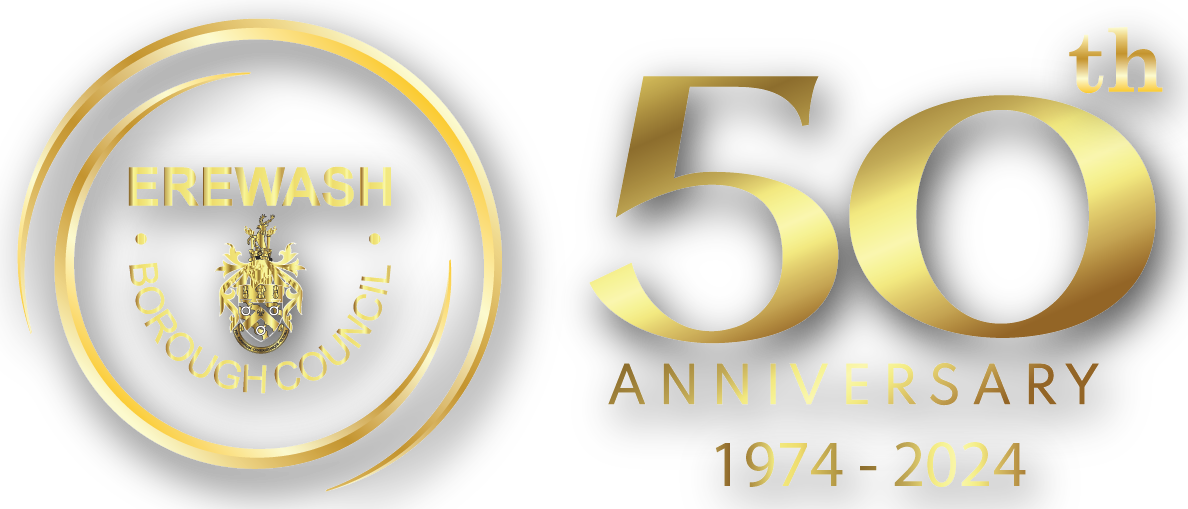Town Centre Health Check October 2024
Contents
Introduction
Since 2018, Erewash Borough Council has produced an annual health check document regarding its two town centres; Long Eaton and Ilkeston, and its two local centres; Borrowash and Sandiacre. Since January 2023 four village centres have been included, in keeping with the draft Local Plan produced by Erewash Borough Council in 2022. These centres are: Breaston, Draycott, Little Eaton, and West Hallam.
These reports help provide the Council with information on planning use class, business category, business type, first/second floor use, and vacancy rates. Regular, 6 monthly, updates help to ensure effective monitoring of the Borough’s centres and reveal any patterns of change. The information in this document is based on the latest monitoring conducted during October/November 2024.
The Council is now able to compare this report’s data with Oct 2018 – April 2024’s data for vacancy rates. Since April 2024 vacancy rates have declined or remained constant in the majority of centres with the largest improvements in Long Eaton Primary Shopping Area (PSA) and the wider Long Eaton Town Centre. Vacancy has also declined in Borrowash, West Hallam, and in Ilkeston’s PSA. Sandiacre and Breaston’s vacancy rates have not changed. Both Draycott and Ilkeston’s wider Town Centre have seen a small increase in vacancy.
The reports for both Town Centres show their PSA and whole area vacancy rates between January 2018 and October 2024. An additional comparison with the 2006 WYG Retail Needs Study Goad Centre Report can be found in the appendix. This is followed by data on the primary use category of ground, first, and second floor units. A 2018-2024 historical data comparison is also provided for ground floor units. Again the 2006 WYG Study can provide further comparison. Finally, there is a detailed breakdown of the business types within six Use Categories (Comparison Retail, Leisure Service, Other Commercial, Retail Service, Financial and Business Services, Convenience Retail. Other non-commercial is not included as the category is small and rarely contains more than one of each business type while residential and vacant are not included as they do not contain any business types).
The reports for the Local and Village Centres show vacancy rates with Jan 2018-Oct 2024 data for the Local Centres and Jan 2023-Oct 2024 data for the village centres. This is followed by the ground and first floor use category data. Historical use category data is not available for comparison, second floor usage has been excluded as it is rare, and most use categories are not large enough to justify business type breakdowns.
The 2006 WYG Retail Needs Study Goad Centre Report and annotated boundary maps for the Town and Local Centres showing the use category of each unit can be found in the appendix.
Previous versions of the Town Centre Health Check from April 2024, October 2023, and January 2023 are avalible on request by contacting This email address is being protected from spambots. You need JavaScript enabled to view it., please ask that the request be passed on to the Economic Development team.
Ilkeston Town Centre 




Long Eaton Town Centre 




Borrowash Local Centre 
Sandiacre Local Centre 
Breaston Village Centre 
Draycott Village Centre 
Little Eaton Village Centre 
West Hallam Village Centre 
Appendices
Appendix 1: Comparison with 2006 business categories data
A Town Centre study was carried out in 2006, it is included here as a baseline to highlight changes.
|
Ilkeston |
2006 |
Apr-24 |
Change | |||
|---|---|---|---|---|---|---|
|
Convenience Retail |
25 |
9% |
19 |
6.6% |
-6 |
-2.4% |
|
Comparison Retail |
86 |
29% |
57 |
19.9% |
-29 |
-9.1% |
|
Retail Services |
38 |
13% |
63 |
22.0% |
+25 |
+9.0% |
|
Leisure Services |
45 |
15% |
56 |
19.5% |
+11 |
+4.5% |
|
Financial & Business |
32 |
11% |
26 |
9.1% |
-6 |
-1.9% |
|
Unknown/Vacant |
32 |
11% |
40 |
14.0% |
+8 |
+3.0% |
|
Residential |
21 |
7% |
13 |
4.5% |
-8 |
-2.5% |
|
Other Commercial |
4 |
1% |
7 |
2.4% |
+3 |
+1.4% |
|
Other Non-commercial |
10 |
3% |
6 |
2.1% |
-4 |
-0.9% |
|
Long Eaton |
2006 |
Apr-24 |
Change | |||
|---|---|---|---|---|---|---|
|
Convenience Retail |
21 |
8% |
19 |
7.7% |
-2 |
-0.3% |
|
Comparison Retail |
92 |
36% |
51 |
20.6% |
-41 |
-15.4% |
|
Retail Services |
31 |
12% |
42 |
16.9% |
+11 |
+4.9% |
|
Leisure Services |
45 |
18% |
47 |
19.0% |
+2 |
+1.0% |
|
Financial & Business |
38 |
15% |
32 |
12.9% |
-6 |
-2.1% |
|
Unknown/Vacant |
15 |
6% |
22 |
8.9% |
+7 |
+2.9% |
|
Residential |
7 |
3% |
19 |
7.7% |
+12 |
+4.7% |
|
Other Commercial |
3 |
1% |
12 |
4.5% |
+9 |
+3.5% |
|
Other Non-commercial |
4 |
2% |
4 |
1.6% |
0 |
-0.4% |
The highlighted categories show where there has been a >4% change over the 17 years.
Appendix 2: Annotated Boundary Maps
Ilkeston Town Centre
Long Eaton Town Centre
Borrowash Local Centre
Sandiacre Local Centre
Unannotated boundary maps can be found on the map portal by select the Planning (Policy Data) category then tick the box next to Town and Local Centres.





















